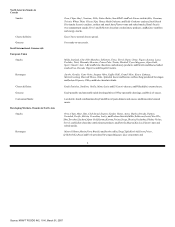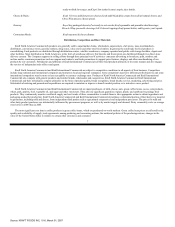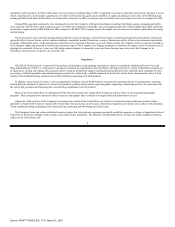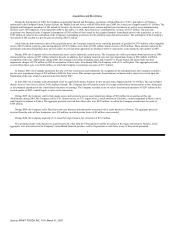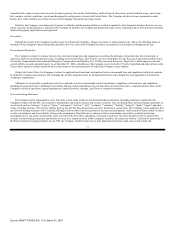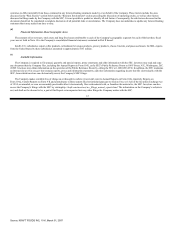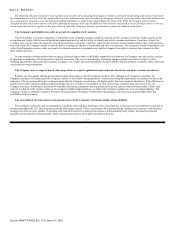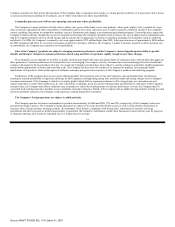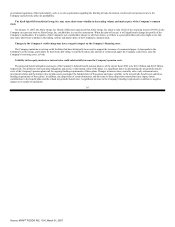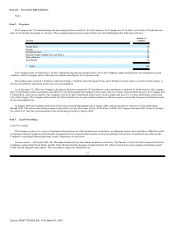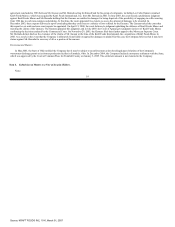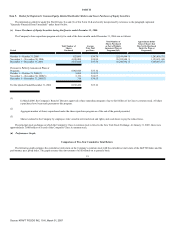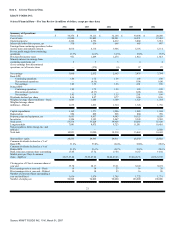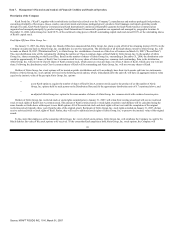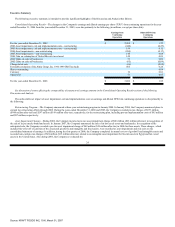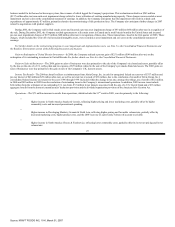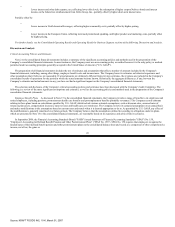Kraft 2006 Annual Report Download - page 20
Download and view the complete annual report
Please find page 20 of the 2006 Kraft annual report below. You can navigate through the pages in the report by either clicking on the pages listed below, or by using the keyword search tool below to find specific information within the annual report.
government regulation of the food industry, such as recent requirements regarding the labeling of trans-fat content, could result in increased costs to the
Company and adversely affect its profitability.
The Kraft Spin-Off from Altria Group, Inc. may cause short-term volatility in the trading volume and market price of the Company's common
stock.
On January 31, 2007, the Altria Group, Inc. Board of Directors announced that Altria Group, Inc. plans to spin off all of its remaining interest (89.0%) in the
Company on a pro rata basis to Altria Group, Inc. stockholders in a tax-free transaction. When the spin-off occurs, it will significantly change the profile of the
Company's stockholders. If a number of the Company's new stockholders choose to sell their shares, or if there is a perception that such sales might occur, this
may cause short-term volatility in the trading volume and market price of the Company's common stock.
Changes in the Company's credit ratings may have a negative impact on the Company's financing costs.
The Company maintains revolving credit facilities that have historically been used to support the issuance of commercial paper. A downgrade in the
Company's credit ratings, particularly its short-term debt rating, would likely reduce the amount of commercial paper the Company could issue, raise the
Company's borrowing costs, or both.
Volatility in the equity markets or interest rates could substantially increase the Company's pension costs.
The projected benefit obligation and assets of the Company's defined benefit pension plans as of the end of fiscal 2006 were $10.4 billion and $10.5 billion,
respectively. The difference between plan obligations and assets, or the funded status of the plans, is a significant factor in determining the net periodic benefit
costs of the Company's pension plans and the ongoing funding requirements of those plans. Changes in interest rates, mortality rates, early retirement rates,
investment returns and the market value of plan assets can impact the funded status of these plans and cause volatility in the net periodic benefit cost and future
funding requirements of these plans. In addition, any disposition of certain businesses and the terms of those disposition transactions may impact future
contributions to the benefit plans and the related net periodic benefit cost. A significant increase in the Company's funding requirements could have a negative
impact on its results of operations.
16
Source: KRAFT FOODS INC, 10-K, March 01, 2007


